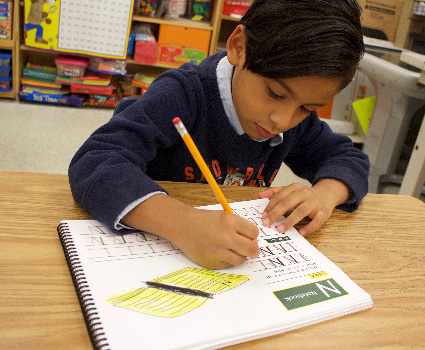
Why Children Like Repetition, and How It Helps Them Learn
- 11 December 2019
Again!” My 4-year-old son Edwin likes to yell over and over again when he finds a new activity or joke that he likes. My 16-month-old, Charlie, likes to repeatedly throw objects on the floor from his high chair or even against the wall if it makes an interesting sound. They both like to hear the same stories every night before bed, they like to eat the same foods for lunch, they like to play with the same toys and watch the same movies every day. When they find something they like, they want to do it over and over and over again.
Why do children like repetition so much? An early developing preference for the familiar is actually quite common in infancy and early childhood. These preferences begin to develop before a baby is even born—in the third trimester of pregnancy. At that point, fetuses can taste, smell, and hear, and as a result, at this time, they begin to develop preferences for familiar flavors from their mother’s food in the amniotic fluid that floats around them (Schaal, Marlier, & Soussignan, 2000; Menella, Jagnow, & Beauchamp, 2001). They also develop preferences for familiar sounds, like the sound of their mothers’ voice (Kisilvesky et al., 2003), their native language (Moon, Cooper, & Fifer, 1993), or even familiar stories that are read to them from outside the womb (DeCasper & Spence, 1986). This trend continues after they’re born, and only after a few hours of exposure, newborns develop a fast preference for their mother’s face (Field, Cohen, Garcia, & Greenberg, 1984). Soon after, they develop preferences for faces in general (Johnson & Morton, 1991), all based on familiarity.
This preference for the familiar might be adaptive—creating an early affinity for the people that are most likely to take care of them.
So perhaps it’s not surprising that children like to read the same books, watch the same movies, and sing the same songs on repeat every day. In fact, there is evidence that this repetition might even support learning.
Not surprisingly, research has shown that children learn better from reading a book over and over again than just reading it once or twice. In one study, researchers presented 3-year-old children with the same new words in three stories over the course of a week. The new words were exactly the same for all children, but half of the children were presented with the words in the same exact story repeated three times, while the others heard the same words in three different stories. Children learned the words better when they heard the same story repeated than when they heard the same words presented in three different stories (Horst, Parsons, & Bryan, 2011).
The same trends have been found for babies. In a similar study, researchers presented 18- to 24-month-olds with a storybook that detailed specific actions needed to make and shake a toy rattle. Infants were read the book either twice or four times, and the researchers found that the more the babies were read the book, the more they imitated the actions they learned (Simcock & DeLoache, 2008). Repeated exposure to actions presented on television also leads to more frequent imitation
